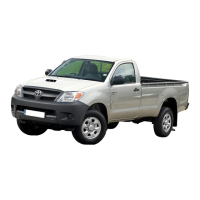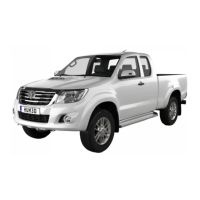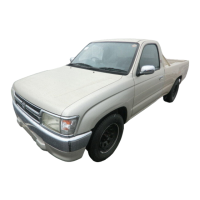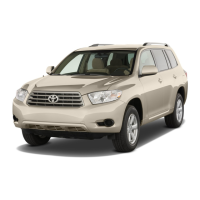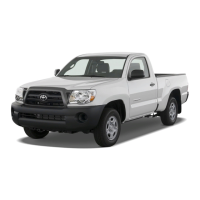Check the condition of your vehicle's
paint and trim.
If you find any chips or
scratches in the paint, touch them up im-
mediately
to
prevent corrosion from start-
ing. If the chips or scratches have gone
through the bare metal, have a qualified
body shop make the repair.
Check the interior of your vehicle. Wa-
ter
and dirt can accumulate under the
floor mats and could cause corrosion. Oc-
casionally check under the mats to make
sure the area is dry. Be particularly care-
ful when
transporting
chemicals, cleans-
ers, fertilizers, salt, etc.;
these
should be
transported in proper containers. If a spill
or leak should occur, immediately clean
and dry
the
area.
Use mud shields on your wheels. If you
drive
on salted or gravel roads, mud
shields help protect your vehicle.
Full-size
shields, which come as
near
to
the
ground
as possible, are the best. We recommend
that
the fittings and the area where
the
shields are installed be treated to resist
corrosion. Your Toyota dealer will be
happy to
assist
in
supplying and installing
the
shields
if
they are recommended for
your area.
Keep
your
vehicle in a well ventilated
garage or a roofed place. Do not park
your vehicle in a damp, poorly venti-
lated garage.
If you wash your vehicle in
the garage, or
if
you drive it covered with
water
or snow, your garage may be
so
damp as
to
cause corrosion. Even
if
your
garage is heated, a wet vehicle can cor-
rode
if
the
ventilation is poor.
Washing and waxing your
Toyota
Washing your Toyota
Keep
your
vehicle clean by regular
washing.
The following
cases
may cause weakness
to
the
paint or corrosion to
the
body and
parts. Wash your vehicle as soon as pos-
sible.
• When driving in a coastal
area
• When driving on a road sprinkled with
antifreeze
• When exposed to coal tar, tree sap,
bird droppings and carcass of an
insect
• When driving in areas where
there
is
a lot
of
smoke, soot, dust, iron
dust
or
chemical substances
• When the
vehicle
becomes remarkably
dirty
with
dust
and mud
223

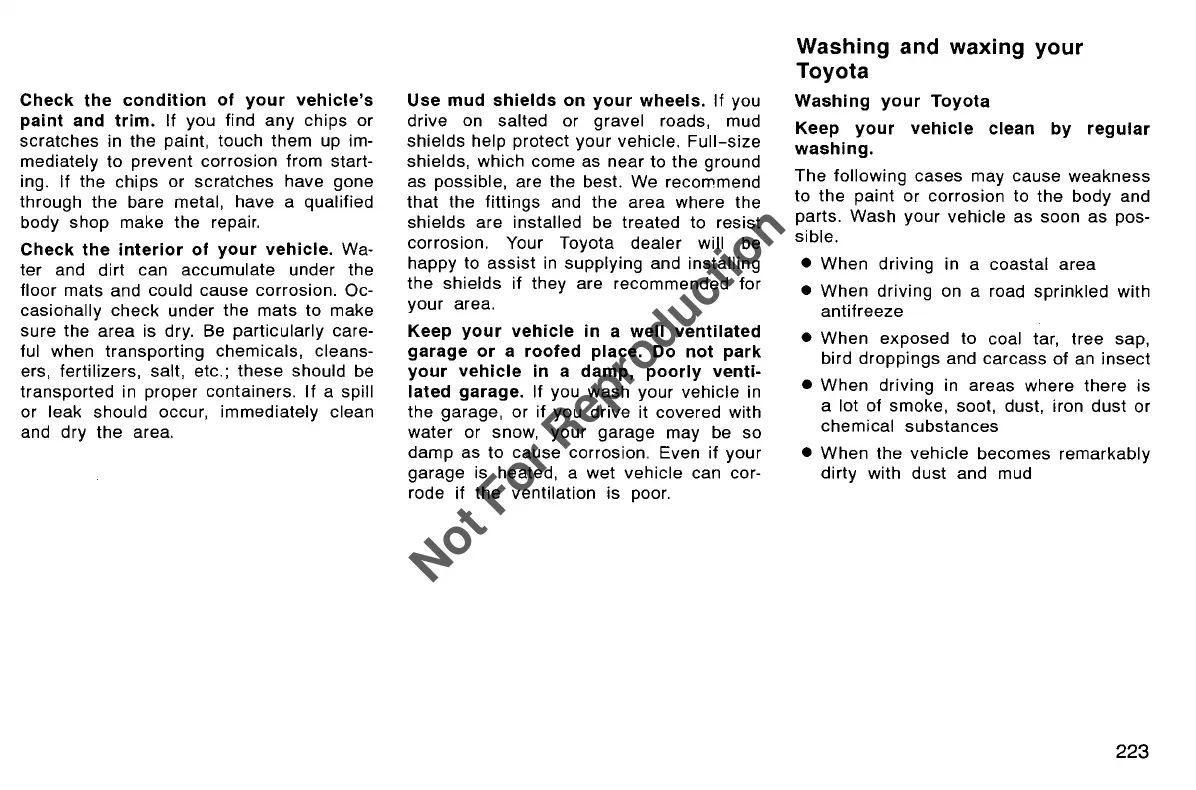